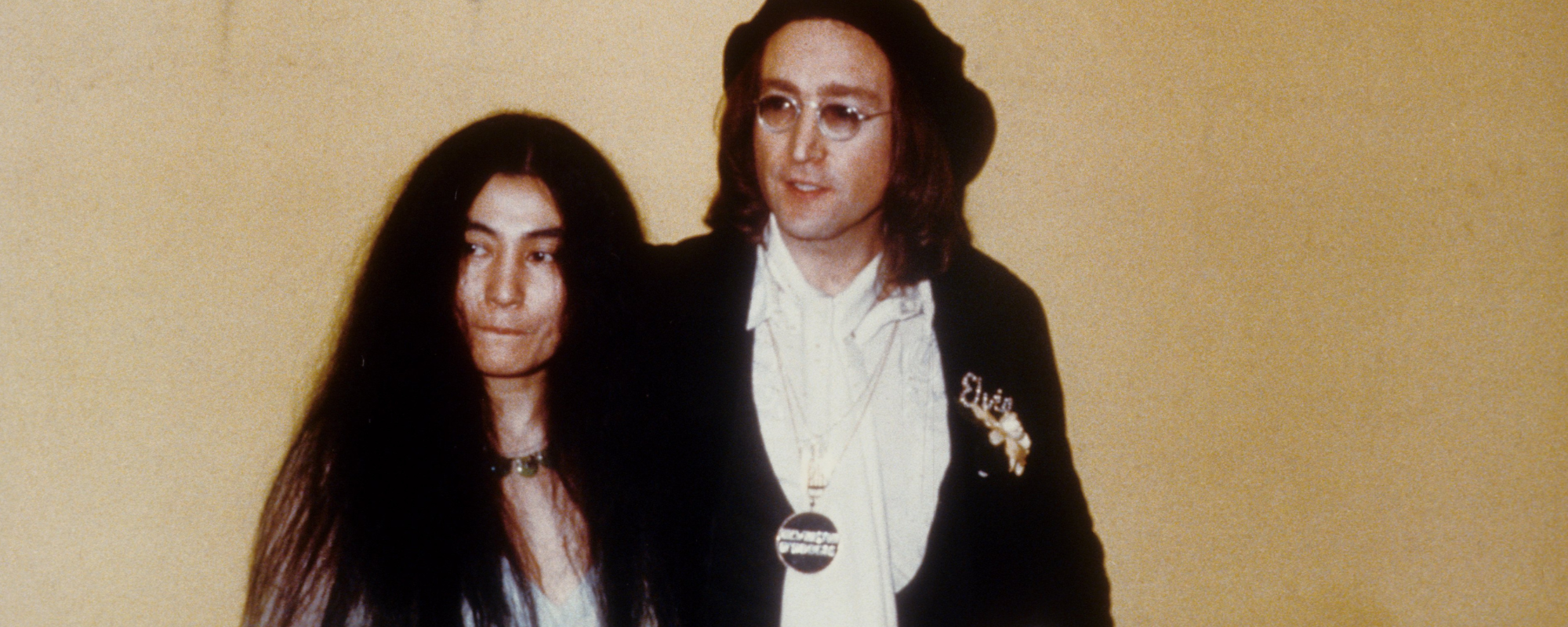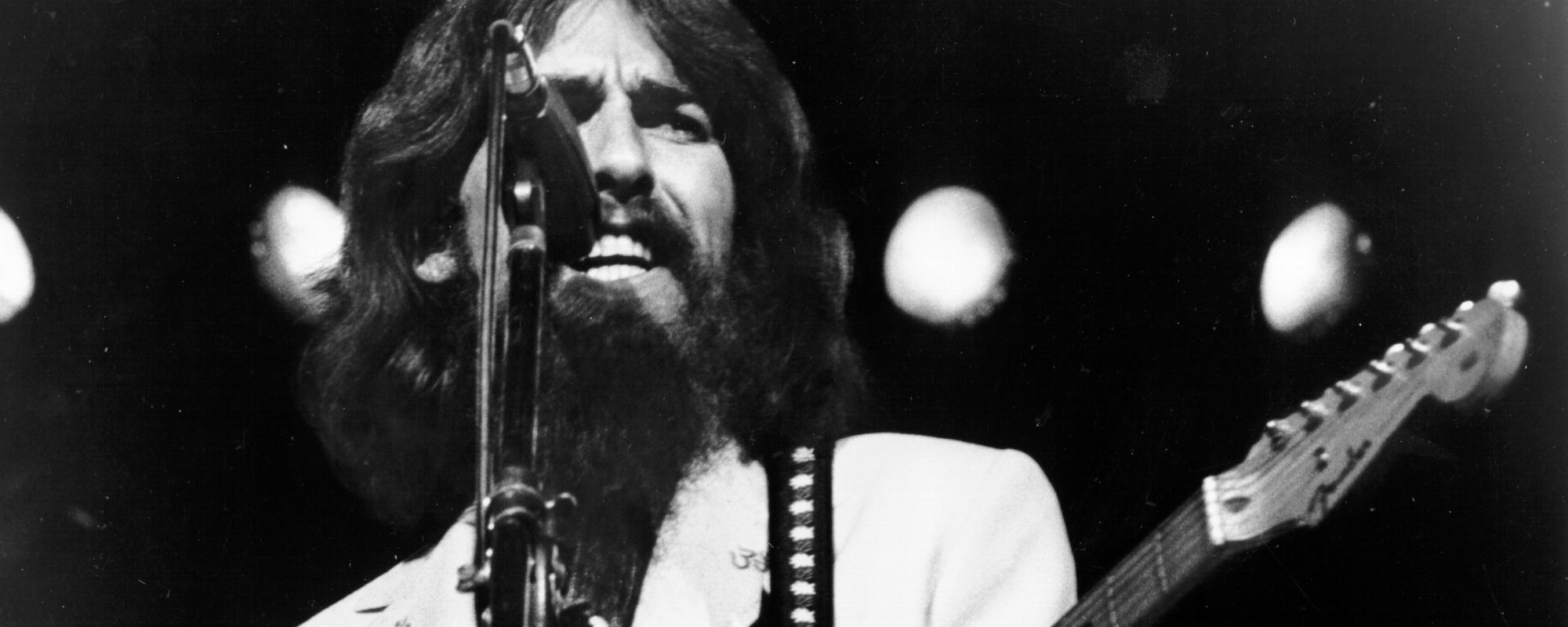You’ll hear songwriters telling stories about writing a song in a matter of minutes that turned out to be a big hit. But Randy Bachman’s tale of making up the Bachman-Turner Overdrive smash “Takin’ Care of Business” practically on the spot in front of a live audience has to take the cake.
Videos by American Songwriter
What is the song about? How did it evolve from a much more complicated song? And is it true that a pizza delivery guy actually played piano on the track? Here is the strange but true tale of “Takin’ Care of Business,” one of the most enduring party songs of the 1970s.
“Business” Decision
Randy Bachman left The Guess Who, a massively successful band at the height of their popularity, in large part because he didn’t like their partying lifestyle. Ironic then that he would find success a few years down the road with Bachman-Turner Overdrive, whose biggest hits were absolute party anthems. BTO emerged from an interim band Bachman had formed called Brave Belt. The main difference between the two was BTO played a harder brand of rock.
Bachman-Turner Overdrive’s self-titled debut in 1973 certainly earned them more acclaim than Brave Belt, but nothing near the level of what Bachman had enjoyed with The Guess Who. The pressure was on for them to make a bigger splash on their follow-up. BTO was playing club dates while gathering material for Bachman-Turner Overdrive II when what would become their most famous song bubbled out of nowhere.
Although, to be completely accurate, the origin story for “Takin’ Care of Business” goes back to 1968 when Bachman was still in The Guess Who. The band was in New York City recording an album when Bachman wrote a song called “White Collar Worker” that was influenced by the morning rush-hour bustle that he witnessed. But the band turned it down for being somehow both too complex (too many chords) and too familiar (it resembled “Paperback Writer” by The Beatles).
While at those BTO club dates in ’73, Bachman was pressed for material one night because C.F. Turner, who shared vocal duties with him, needed a break from singing. He remembered “White Collar Worker,” but he knew the group could never learn the complex song on the fly. Instead, he asked them to play a simple three-chord figure, and he sang the lyrics over that.
When it came time for a chorus, Bachman remembered the phrase “Takin’ Care of Business,” which he had heard from a local DJ. He sang that as a refrain and improvised rhymes to go along with it. The crowd went so wild they played the song again, and BTO knew right then they had a chance at their first major hit.
The final piece of this wild puzzle came once the band went into the studio to record it. When a piano part was needed, Norman Durkee was called from the next room in the studio to play it. After the fact, Randy Bachman claimed that Durkee was a pizza delivery guy who just happened to play piano and was in the right place at the right time. However, Durkee claimed to have been in the next studio playing on commercial sessions, and that Bachman was confused because to learn the chords, he wrote them on the back of a pizza box.
What is the Meaning of “Takin’ Care of Business”?
“Takin Care of Business” ingeniously manages to appeal to 9-to-5 workers, while also saluting the lifestyle of being a rock-and-roller. The first verse is mostly devoted to the hustle and bustle of the workers heading out to their various occupations. It’s easy to relate to the strain of it all: And if your train’s on time, you can get to work by nine / And start your slaving job to get your pay.
Bachman then contrasts that pressure to the more laid-back life musicians live: If you ever get annoyed, look at me I’m self-employed / I love to work at nothing all day. He comments that it’s not like you can just choose to be famous: If it were as easy as fishin’, you could be a musician. Still, once you get to that elevated level, a musician’s life ain’t bad: It’s the work that we avoid.
“Takin’ Care of Business” gave BTO the breakthrough it desperately needed. They’d improve upon that the following year with the even bigger “You Ain’t Seen Nothing Yet.” You can find both of these songs on any weekend night blasting out of a jukebox, but neither would have happened had Randy Bachman not come up with a last-minute bolt of inspiration right before he stepped up to the mic.
When you purchase through links on our site, we may earn an affiliate commission.
Photo by Ts/ZUMA Press Wire/Shutterstock












Leave a Reply
Only members can comment. Become a member. Already a member? Log in.